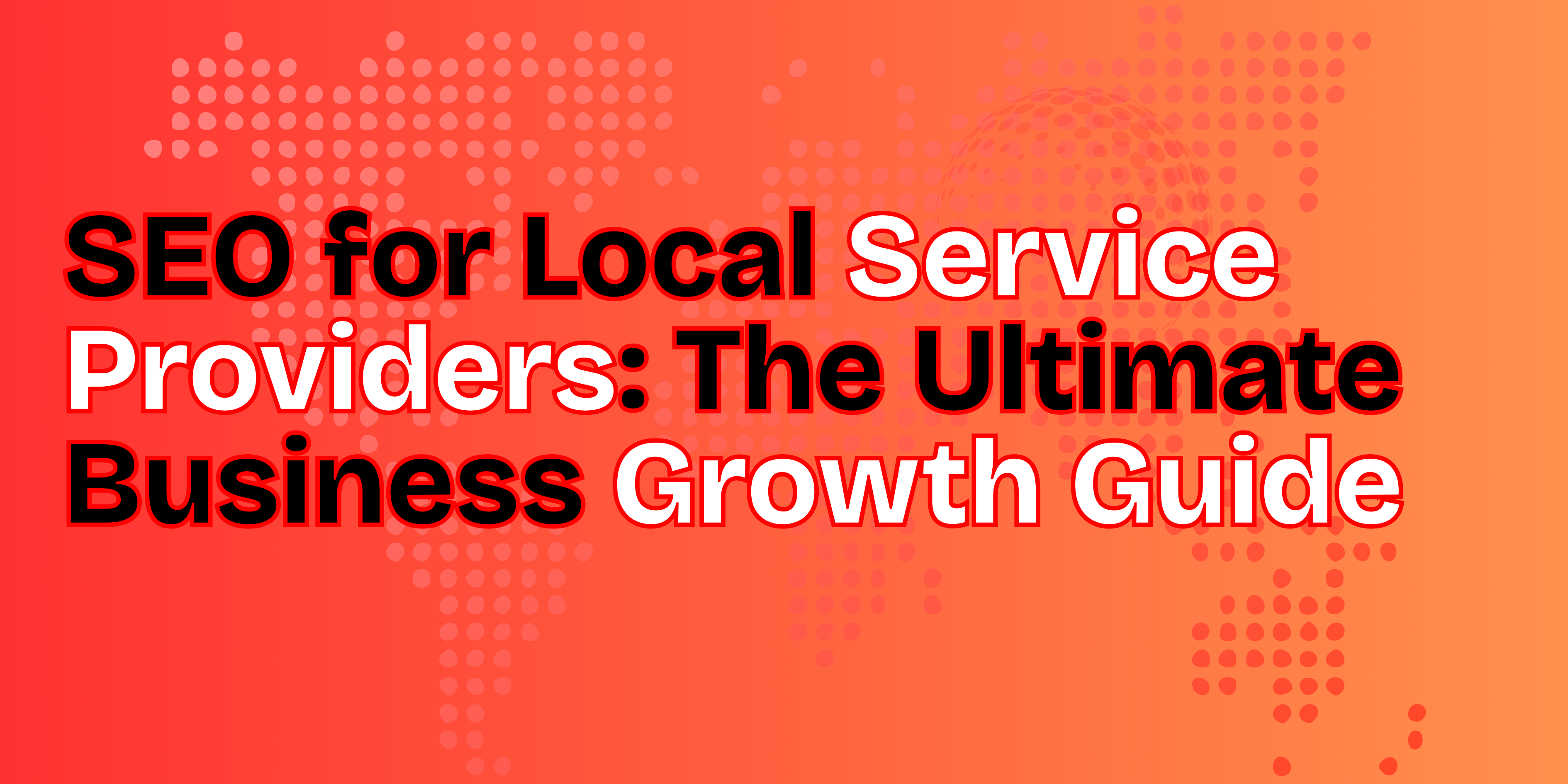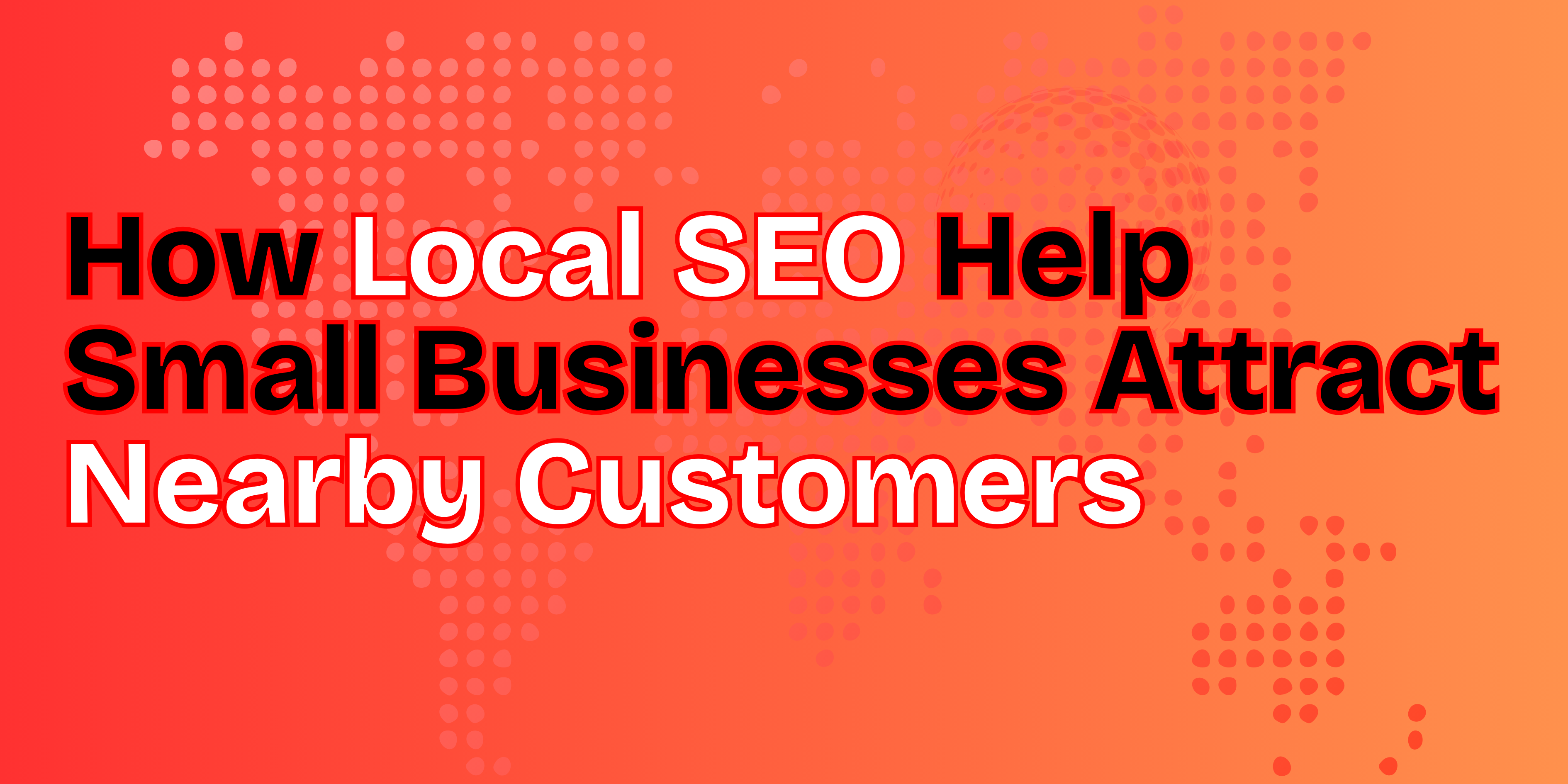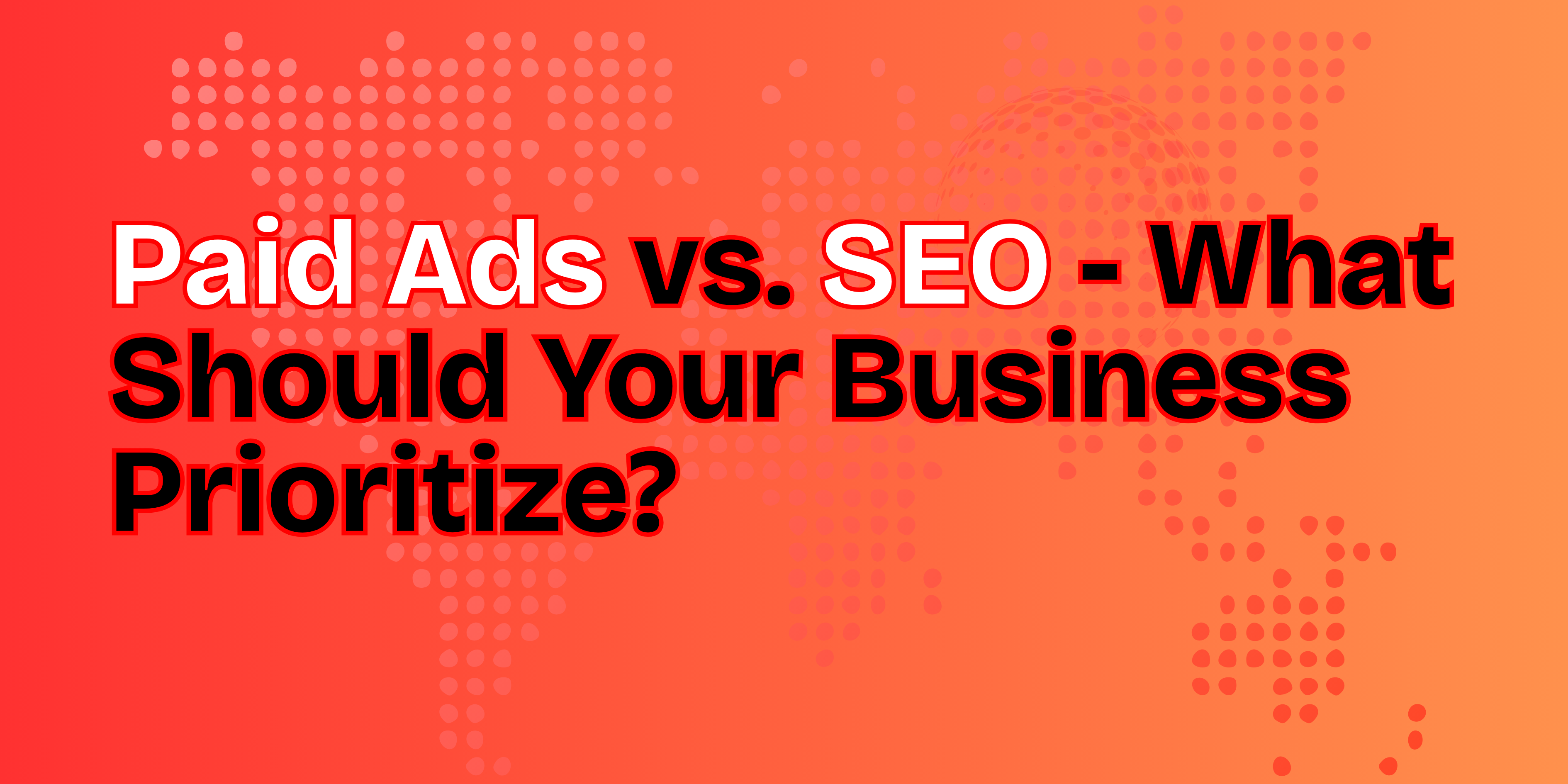If you run a service based business—whether you’re a plumber, personal trainer, consultant, landscaper, or any local expert—you’ve likely wondered: How can I consistently attract more customers online without relying heavily on paid ads?
The answer lies in implementing a solid SEO strategy for service providers. Search Engine Optimization (SEO) is one of the most reliable, cost-effective, and sustainable ways to increase your online visibility. It helps your business show up on Google Search when potential customers are actively looking for services you offer—especially in your local service areas.
In this guide, we’ll break down everything you need to know about SEO for service-based businesses, with a strong focus on local SEO, Google Business Profile optimization, and service area targeting. Whether you’re just getting started or looking to improve your current search ranking, we’ll keep it clear, practical, and results-driven—so you can start generating more qualified leads without wasting time or money.
Table of Contents
- What Is SEO for Service Providers?
- Why SEO Matters for Local and Service-Based Businesses
- Key Benefits of SEO Service
- How Does Local SEO for Service Area Businesses Work?
- Real-Life Example: How SEO Helped a Local Business Thrive
- What to Look For in a Local SEO Partner
- Questions to Ask Before Hiring an SEO Company
- Common SEO Mistakes Service Providers Should Avoid
- How Much Does SEO Cost for Service Providers?
- Ready to Attract More Local Customers?
What Is SEO for Service Providers?
SEO (Search Engine Optimization) is the practice of improving your website and overall online presence to appear higher in Google search results when people are looking for services like yours. It’s about making sure your business gets discovered by the right audience—organically with SEO effort, without the need for paid ads.
SEO for service providers is tailored specifically for businesses that offer services instead of physical products. These businesses can include:
- Home service professionals (plumbers, electricians, HVAC technicians, cleaners)
- Health & wellness experts (therapists, chiropractors, personal trainers)
- Freelancers and consultants (marketing consultants, copywriters, designers)
- Beauty and personal care providers (hairdressers, estheticians, nail technicians)
The goal of SEO in this context is simple: to attract more local clients by appearing in search results, Google Maps, and local listings when someone searches for services in your area. If you want potential customers to find your business online without paying for ads, investing in a strong local SEO strategy is the way to go.
Why SEO Matters for Local and Service-Based Businesses
When someone types “electrician near me” or “massage therapist in Dallas” into Google, they’re not casually browsing—they’re looking to book a service now. These are high-intent searches, and if your business doesn’t show up, a competitor’s will.
This is exactly why local SEO for service-based businesses is so important. Unlike brick-and-mortar stores, most service providers operate across multiple areas or travel directly to the client. Local SEO helps your business appear in searches that include geographic intent, such as suburb names, city locations, or “near me” keywords.
By optimizing your Google Business Profile, building local citations, and using location-based keywords on your site, you increase your visibility where it matters most—on the search results of people actively looking for the services you offer in the areas you serve.
Key Benefits of SEO Service
Still wondering if SEO is worth the investment? For service based business, SEO is one of the most powerful tools for sustainable growth. Here’s how it helps:
- Attract Local Customers Actively Searching
With the right local SEO strategy, your business can show up in search results when people in your area are looking for services like yours—whether it’s “plumber near me” or “personal trainer in [city name].” - Build Credibility and Trust
Ranking high in Google’s organic results makes your business appear more reliable and professional. Consumers trust businesses that show up at the top. - Generate High-Intent Leads Without Paid Ads
SEO drives organic traffic, meaning people find your services without you having to pay for every click—leading to cost-effective lead generation over time. - Increase Visibility on Google Map and Local Listings
An optimized Google Business Profile and consistent NAP (Name, Address, Phone) info across directories improve your rankings in map packs and local search. - Achieve Long-Term, Scalable Growth
Unlike short-term ad campaigns, SEO builds momentum over time. With regular updates and optimization, it ensures ongoing visibility and lead flow.
How Does Local SEO for Service Area Businesses Work?
Local SEO focuses on optimizing your online presence so potential local customers in your service area can easily find and contact you—even if you don’t operate from a physical storefront. Here’s how to make it work effectively:
1. Google Business Profile (GBP) Optimization
Start by claiming and optimizing your Google my Business Profile. Ensure all details are accurate—especially your business name, service areas, contact info, website link, and business hours. Add high-quality photos, respond to reviews, and regularly post updates. A well-optimized GBP boosts your chances of showing up in the Google Local Pack, the top Google map listings that appear for local searches.
2. Targeted Local Keywords
Use location-specific keywords naturally throughout your site content, meta titles, and descriptions. Examples include:
- “Affordable house cleaning services in Denver”
- “Best pest control in Miami”
These terms help Google understand what you offer and where you offer it, improving your local rankings.
3. Create Dedicated Service Area Pages
If your business covers multiple cities, towns, or neighborhoods, develop individual landing pages for each. This approach allows you to rank for long-tail, localized searches like “electrician in Arlington” or “landscaper in Plano”, and helps potential customer find tailored info for their area.
4. Build Online Citations & Directory Listings
Make sure your business is consistently listed across trusted online directories like Yelp, Angi, Thumbtack, HomeAdvisor, and your local chamber of commerce. Accurate NAP citations (Name, Address, Phone number) across these platforms improve your local authority and trust signals.
5. Ensure Your Website is Mobile-Friendly
With over 60% of local searches happening on smartphones, your website must be mobile-optimized. That means fast load times, responsive design, click-to-call buttons, and easy navigation for users to book or contact you instantly.
Real-Life Example: How SEO Helped a Local Business Thrive
Let’s take the example of Sarah, a mobile dog groomer based in Tampa, Florida. Initially, Sarah’s business had a minimal online presence—her website was buried on page three of Google, and nearly all her clients came from word-of-mouth referrals.
Determined to grow, she took a few key steps to implement local SEO:
- She fully optimized her Google Business Profile, including service areas, business hours, and photos of her grooming work.
- She created dedicated service pages for nearby neighborhoods like St. Petersburg and Clearwater.
- Most importantly, she began asking satisfied clients to leave positive Google reviews.
Within just a few months, her site moved to the first page of local search results. Today, Sarah receives multiple calls every day from dog owners who find her through organic search—and she’s doing it without spending on paid ads.
What to Look For in a Local SEO Partner
You don’t have to navigate local SEO alone. Partnering with the right local SEO expert can save you time and help you get faster results. Here’s what a reliable SEO service provider should offer:
- Targeted Keyword Research
They should help you identify the most relevant and high-converting keywords for your industry and service area. - Website Optimization for SEO & Conversions
A good partner will not only improve your rankings but also enhance your site’s user experience to turn visitors into customers. - Local Citations and Link Building
They’ll build strong local backlinks and directory listings to boost your credibility and visibility on platforms like Google Map. - Performance Tracking and Ongoing Improvement
Look for an expert who provides regular updates, tracks rankings, traffic, and leads, and adjusts strategies for continuous growth.
Questions to Ask Before Hiring an SEO Company
Before you partner with an SEO agency, make sure they’re the right fit for your business. Here are a few key questions to ask:
- Do they specialize in SEO for service based business like mine?
Every industry is different. Choose a team that understands the unique needs of local and service area business. - Do they provide clear, transparent reporting?
You should always know how your SEO is performing. Look for regular updates, data-driven insights, and easy-to-understand reports. - Do they focus on long-term, sustainable growth?
Avoid quick-fix promises. The best SEO strategy is designed to build lasting visibility and results over time.
Common SEO Mistakes Service Providers Should Avoid
Avoiding these frequent missteps can save you time, money, and missed opportunities:
- Not optimizing your Google Business Profile (GBP):
A half-filled or outdated GBP can hurt your visibility. Make sure your business hours, contact details, service areas, and photos are always up to date. - Skipping location-based keywords:
Without targeted local keywords (e.g., “HVAC repair in Austin”), Google won’t know where to rank you. These keywords are crucial for showing up in your service areas. - Having a slow or poorly designed website:
If your site takes too long to load or isn’t mobile-friendly, visitors (and Google) will bounce. A clean, fast, and easy-to-navigate website improves user experience and rankings. - Not asking for reviews:
Customer reviews are a local SEO goldmine. They build trust and help boost your ranking in the local pack. - Using duplicate content across service pages:
Copying the same content across different location pages can confuse Google and lower your rankings. Make sure each service or city page is unique and relevant.
Fixing these mistakes can dramatically improve your search rankings, boost traffic, and get more qualified leads—without needing to rely on ads.
How Much Does SEO Cost for Service Providers?
The seo services cost depends on the level of service, your business goals,SEO campaign and how competitive your local market is. Here’s a general breakdown:
- Basic Local SEO pricing: $300–$600 (one-time)
This typically includes setting up or optimizing your Google Business Profile, adding local citations, and performing foundational keyword research. - Ongoing Monthly SEO Services: $500–$1,200 per month
These packages usually include keyword tracking, content optimization, backlink building, technical SEO fixes, and ongoing performance reports.
For most service based businesses, this investment is more cost-effective and sustainable than constantly spending on pay-per-click (PPC) ads. SEO builds long-term visibility and drives steady, high-quality leads without ongoing ad spend.
Ready to Attract More Local Customers?
At Your Rankers, we specialize in helping service-based and local businesses grow through smart, data-driven SEO strategy. Whether you’re a solo professional or a small team, we’ll help you built strong online presence rank higher on search engine results page, attract consistent local leads, and website traffic and turn your website into your most powerful sales tool.
✅ Let’s take the guesswork out of local SEO.
📞 Contact us today for a free consultation and discover how we can get your business the visibility—and results—it deserves.




